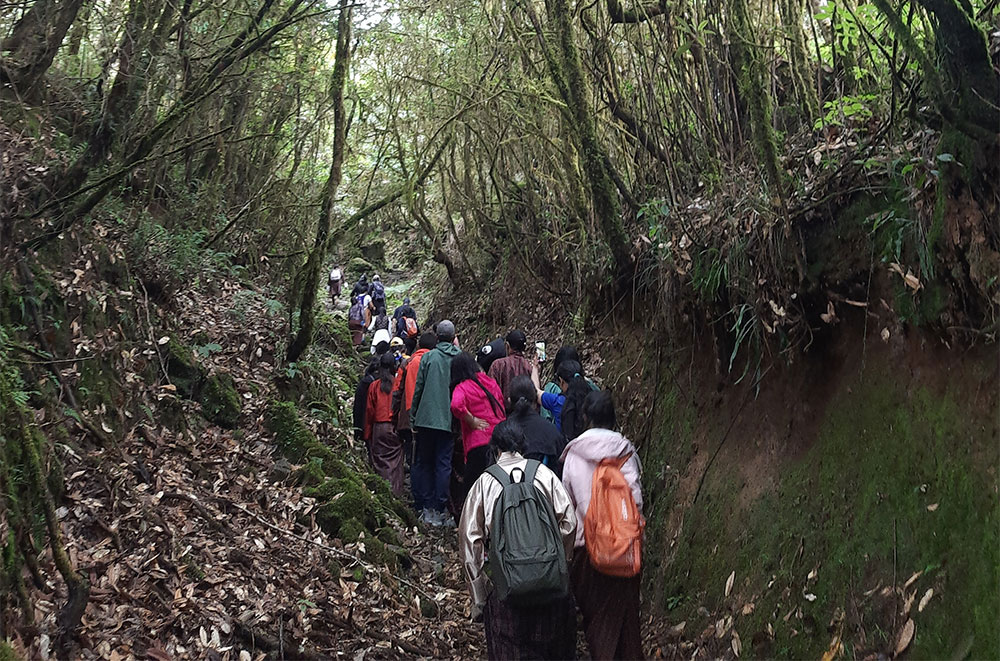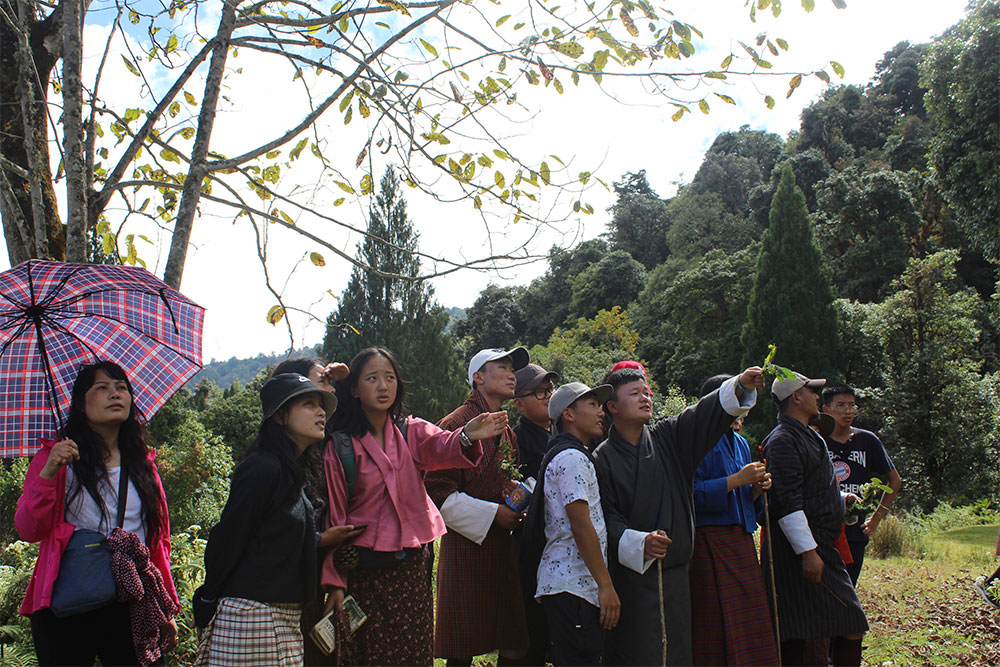Chhimi Dema
To relive the tradition of seasonal migration and explore flora and fauna along the Punakha-Thimphu migratory trail, 25 students from Motithang Higher Secondary School trekked the route from October 15 to 17.
The students, nine teachers, and two professional guides from Etho Metho Tours and Treks covered 17km in two days.
A student, Dechen Zam, 16, said the two-day trek was healing and allowed them to connect with nature and helped them understand the country’s history. “The trek made me realise how we have become distanced from our land and nature. It’s sad we need a guide to tell us about our land.”
She said she realised how the materialistic world has exploited young and indigenous minds and created a gap between them and their ancestors. “My perspective of learning has shifted after the trek,” Dechen Zam said, adding that students should go out of classrooms to learn about the ancient ways and the country’s culture.
She said that such initiatives encourage and spark the passion and zeal in students to learn. “I hope the education system includes other plans similar to this in the curriculum where children can enjoy learning.”
A Class 10 student, Yudenma, said that it was refreshing to trek and connect with nature. “There should be more opportunities and avenues to learn with experience.”
Another student, Ugyen Galley Namgyal, 16, said he learnt how ancestors travelled decades ago. “If I stayed home, then I would have been on my phone. The trek made me feel rejuvenated.”

The trail was once used by people of Thimphu and Punakha for seasonal migration
Motithang Higher Secondary School’s vice principal, Tshering Zam, said that the trek was physically and mentally rejuvenating because they took a leisurely pace with stops to examine plants, insects, and trees.
“Learning outside the classroom is important. Children get first-hand experience in observing and learning about the environment,” she said. “This enables students to appreciate our environment and understand the importance of living in harmony with other living beings.”
She said the school is committed to providing students with various means to enhance their learning.
The school organises hikes and field trips for the students to explore and learn.
The former director of Etho Metho Tours, Tandin Sangay Wangchuk, said the trek aims to relive traditions and provides students with the opportunity to experience nature and culture of Bhutan.
He said that students were engaged to allow them to take more ownership of the planet and their role on it. “We want the young to connect with culture and nature.”
The trek started from Seo Drangsa in Talo gewog with a brief halt at the house that Drukpa Kunley visited in the 16th century, in search of an arrow he shot from Tibet.
The trek continued on the Drukpa Kunley trail, revived in 2016, and then concluded at a homestay in the My Gakid Village in Toepisa gewog.
The pilot project was supported by the United Nations Resident Coordinators Office, Bhutan Ecological Society, Tourism Council of Bhutan, Dhumra Farm Resort, Motithang Higher Secondary School, and Etho Metho Tours and Treks.
Edited by Tashi Dema


